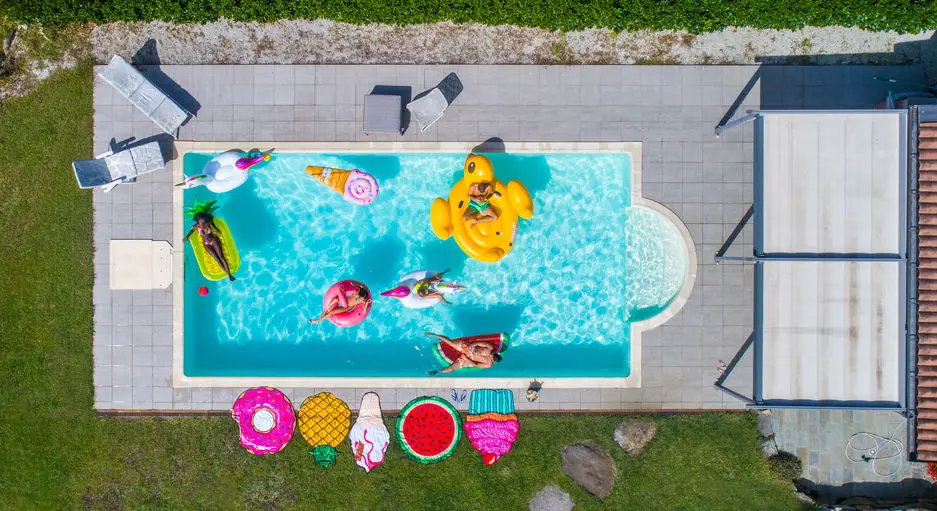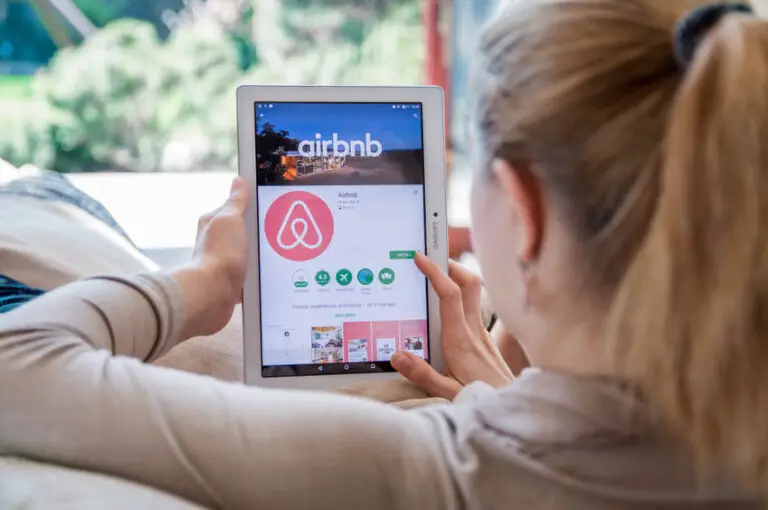Does Installing a Swimming Pool Ever Make You Money?
You May Be Surprised but the Answer is Yes (sometimes)
A basic new in-ground pool typically costs at least $30,000. Some pools with elaborate water features and large decks cost $100,000 or more. After it is installed, you will probably spend at least $1000 per year maintaining it.
Assuming that pools are desirable and somewhat commonplace for your neighborhood, and your pool and pool equipment are still in good condition, you should be able to get some of that money back when you sell. For a basic pool the costs you $30,000, your home might be worth more $10,000 to $15,000 more compared to an almost identical home without a pool.
This will vary quite a bit by area. An older pool in poor condition might actually subtract value from your home; even a pool in great condition might hurt your home value if you live in a cold weather area or if homebuyers prefer a lower maintenance type of living.
Besides the installation cost and monthly costs of pool ownership, you also have the very real safety concern of drowning, especially for families with young kids or pets.
Most people comprehend that they are NOT going to get all the money back that they invest into a pool, and are aware of the safety concerns; however, there are still over 10 million private pools in the U.S. The fact remains that many people get a significant amount of enjoyment from owning a pool.
Parents enjoy watching their kids splashing around in the pool and love to entertain by the pool. The pool pays a dividend in happiness, not money.
But what about people who never are going to use the pools themselves, like home builders or investors; if they are strictly concerned with a return on their investment, why would they ever install a pool? There are a few situations where installing a pool does have a positive return on investment; in other words, you get more money out than you put in.
Here are the Times Where a Pool Can Have a Positive ROI
1.) Custom home builders in areas where all competing properties have a pool – think of a high end area like a gated community in Scottsdale, Arizona. If a home builder does not put a pool in, buyers consider the property to be unfinished. Buyers tend to want a custom home to be turnkey and so they mentally price in the full cost of a pool and the hassle of installing and financing the pool when they look at the home. Some buyers won’t even consider making an offer on a home without a pool. Builders realize that they may miss out on getting top dollar for the home itself if a lot of buyers are immediately turned off from the lack of a pool.
2.) Tract home builders – sometimes a tract home builder like Lennar or DR Horton will use a pool as an incentive. Tract home builders like to maintain their base pricing and gradually increase the price phase after phase of the development. However, they will manage the ebbs and flows of supply and demand by increasing or decreasing incentive packages. This might be by giving a credit towards buyer closing costs, buying down the buyers interest rate, tossing in some free upgrades, or even installing a pool at no additional cost to the buyer. They may not make money on the pool itself, but they will make more money by selling more homes quickly.
3.) Homes in a pending moratorium area – some cities have passed moratoriums on any new pools being constructed. Others have changed the impervious coverage ratio in such a way that building a new pool is effectively impossible. Oftentimes these moratoriums don’t go into effect right when they are voted on; they go into effect at a future date a few months out. It might make sense in some cases to rush to obtain a pool building permit before the deadline, because that pool will be grandfathered in. This opportunity has presented itself recently in coastal areas, in California or along the Atlantic Coast, for instance. It is possible that the value of the property could be raised more than the cost of the pool, if buyers demanded pools and no new ones could be built.
4.) Vacation rentals – normally landlords don’t like pools at all. Renters on a yearly rental generally don’t care as much about having a pool since they aren’t going to be getting years of enjoyment out of it. They might pay a little more for a home with a pool, but not drastically more. Renters are generally very price sensitive; even $100 a month might make a big difference. Vacation renters, however, only go on vacation a limited number of times per year. Having a pool for their 3 day vacation might be worth $50 a night to them, and over time, that can really add up. Looking at a site like AirBnB, compare the price of similar listings with and without a pool. In some areas and in some cases, it might make sense to install one.
5.) Renting out your pool – one website called Swimply has sprung up for the express purpose of allowing pool owners to make extra money by renting out their pools in hourly increments. The rates tend to be at least $50 per hour and there is often a 2 or 3 hour minimum. I am a skeptical of whether there is enough demand for this to the point that someone could turn a profit on the installing and owning a pool. People renting a pool for a birthday party are probably going to want to rent the nicer, fancier pools that are more expensive to build. Your homeowners insurance probably does not cover this activity, and would be more expensive if it did. Demand would not be even throughout the week so renting would probably be concentrated on the weekends. The only real chance for this to work would be if you live in a place with year-round tourism and people start to find out and get socially comfortable with the idea of pool renting. You’d also have to keep your fingers crossed that your town doesn’t crack down on pool renting, as some have.


